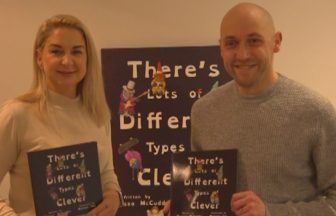Energy drinks are linked to insomnia and poor sleep in young people, with just a few cans a week having an effect, research suggests.
Experts found that young people aged 18 to 35 who consumed the drinks every day slept around half an hour less than those drinking them occasionally or not at all.
Among men, having two or three drinks a week meant they were 35% more likely to have a bedtime after midnight, 52% more likely to sleep less than six hours, and 60% more likely to wake in the night than those who did not or rarely drank them.
For women, they were 20% more likely to have a bedtime after midnight, 58% more likely to sleep less than six hours, and 24% more likely to wake in the night.
It comes after a study published last week said the sale of all energy drinks to young people and children in the UK should be banned because of links with anxiety, stress and suicidal thoughts.
Energy drinks often contain high levels of caffeine and sugar and are marketed as providing people with an energy boost.
The Government has consulted on a proposal to end the sale of energy drinks to children under 16 in England and has said it will set out a response in due course.
In the meantime, some larger retailers and supermarkets have voluntarily introduced a ban on the sale of energy drinks to children under 16.
Researchers have said, however, that the drinks can still be easily bought by children in places such as corner shops.
The latest study, published in BMJ Open and based on 53,266 Norwegian students, found the drinks are popular with young people.
Students in the study were asked how often they drank energy drinks, with responses including daily, weekly (including once a week, two to three times a week, and four to six times a week), monthly (one to three times), and seldom/never.
They were also asked detailed questions about their sleep patterns, such as when they went to bed and got up, how long it took them to fall asleep and if they woke in the night.
Insomnia was defined as problems falling and staying asleep and waking early on at least three nights a week, plus daytime sleepiness and tiredness for at least three days of the week, for at least three months.
Overall, half of women in the study said they never consumed energy drinks, while the figure was 40% in men.
Of those who did drink them, 5.5% of women said they drank them four to six times a week and just over 3% drank them every day.
In men, 8% drank them four to six times a week and 5% drank them every day.
The results showed that people consuming the drinks daily had more issues overall with waking after falling asleep and took longer to fall asleep, and slept less overall than those not drinking them.
The study also found that the more people drank, the less sleep they had.
For women drinking energy drinks daily, 51% reported suffering insomnia, compared with 33% of women who drank the drinks occasionally or never.
Meanwhile, in men, 37% of daily drinkers suffered insomnia, compared with 22% of those who rarely or never had the drinks.
Men who were daily drinkers were more than twice as likely to say they slept fewer than six hours a night as infrequent drinkers, while women were 87% more likely to do so.
But even students having one to three energy drinks a month had bigger sleep issues than those who never touched them, the study suggested.
The researchers warned they had not established that energy drinks cause these effects and acknowledged that reverse causality – whereby energy drink consumption might be a consequence of poor sleep rather than the other way round – might explain the link.
However, they said: “The results from the current study show that there is a robust association between the frequency of (energy drink) consumption and the different sleep parameters.”
The experts were drawn from across Norway, including the Universities of Bergen and Oslo.
Follow STV News on WhatsApp
Scan the QR code on your mobile device for all the latest news from around the country


























